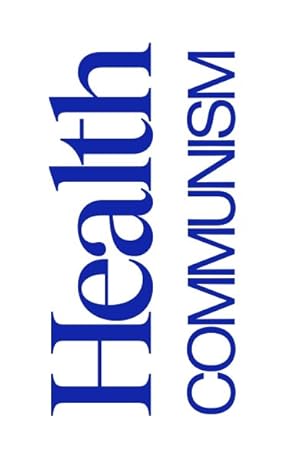Health Communism - "LABOR" Reflections
Hi, I wanted to email with some reflections from chapter 3 ("LABOR") from Health Communism by Beatrice Adler-Bolton and Artie Vierkant before our video chat tomorrow at 12p ET. These thoughts are, as usual lately, pretty wobbly, but if they give you something to start from, then that's great. Hope we'll talk tomorrow.

LABOR
Capitalism has defined "health" itself as a capacity to submit oneself to labor. (pg 44)
To enforce these distinctions, workers who refused to bend to the new will of law were characterized as a kind of social plague, weaponizing the memory of death and destruction that had just ripped through the lower classes over the course of the Black Death. (page 46)
Not only was work a requirement for membership in the body politic, for rehabilitationists work itself would become the sole therapeutic means by which one who had been cast out of society could re-earn their citizenship and be reclaimed for industry. (page 51)
The worker/surplus binary should be understood not just as a system for economic control but also as an idea that drives the many means of certification which have been repeatedly reproduced in legislation and diagnostic criteria designed to shield capitalism from caring for the poor. (page 55)
Reflections
It's been a while since I've read something and I had a visceral feeling like "ohh, so this is where this bullshit in my life comes from" ("this bullshit", meaning... the moralizing that gets applied - or that I apply myself - to extended periods of unemployment or refusal to do labor under horrendous and violent conditions).
I didn't really give much thought to the exact sources of the eugenicist discourse that we see today in welfare programs - the projects to mark people as legitimate or deserving based on their capacity to do labor (page 44 (give or take?)), or more chillingly the determination of the state to extract and exclude people from political and civil society until they produce and labor for industry (see page 51-55ish).
It's not to say that I was okay with it, but rather that it just seemed like... some inscrutable, arbitrary punishment for vulnerable people merely to make people desperate and fractured. This chapter actually traced out for me how it's not arbitrary, or at least that you can trace the circumstances that led to what we now have.
I also wanted to pull this quote up about the "social plague" of people who refused to work. I'm realizing a lot of the moralistic feelings I have about not working - and the rancid recriminations people have for students and workers who strike in support of Palestine - seems to take from these same roots.
I still want to think about this, but if anyone has thoughts about refusal (or inability) to do labor, and the violent recriminations and rebukes that people have for you, I'd be keen to read or hear about it tomorrow (or whenever).
Chat on Saturday
As usual, we'll have our video chat on Saturday at 12pm ET; you can join here. We'll talk about chapter 3 of Health Communism (and whatever else comes to mind).
Buy the book
If you haven't bought the book yet, you can still catch up. You can buy it here. Purchases made through the Workshops4Gaza fundraiser send proceeds (or more, if you opt to donate more) to The Sameer Project.
If you can't buy the book (or can't buy it from Open Poetry because of shipping constraints or something), please consider making a donation directly to The Sameer Project, if you have the money for it. If you don't please consider sharing the book (or the reading group) with comrades and other like-minded friends.